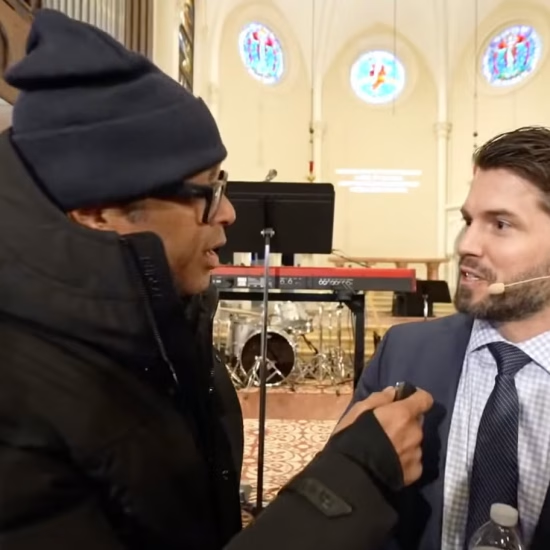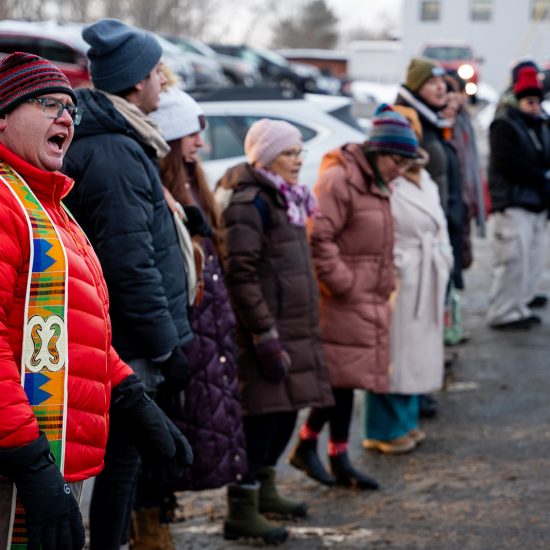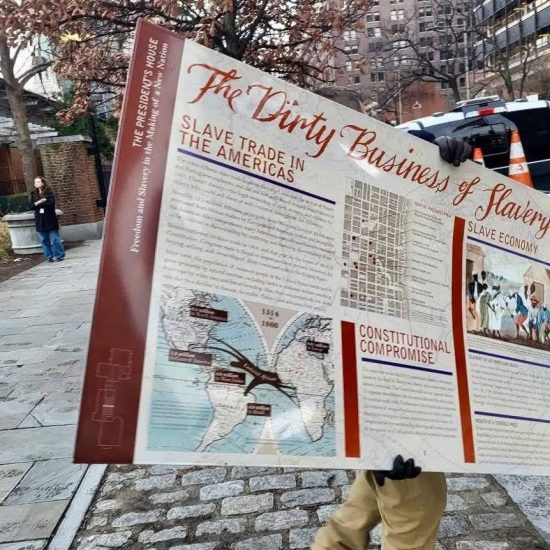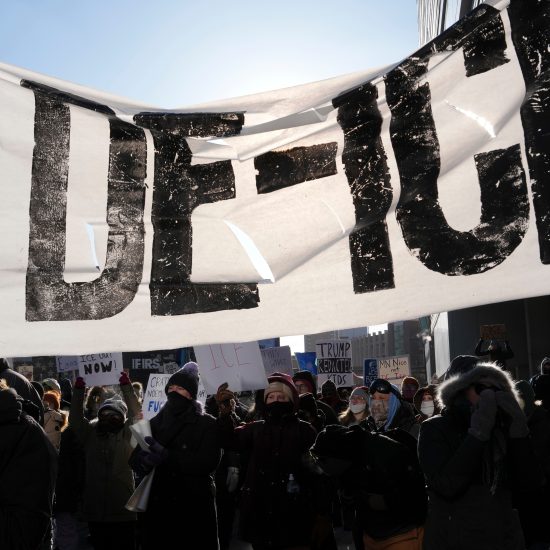
There’s a new religious pilgrimage available for followers of Donald Trump. Devotees show up at Trump’s Manhattan trial and make a speech attacking the judge, the judge’s daughter, the trial, the Democrats, and the courtroom itself. No religious pilgrimage has ever been a bigger circus.
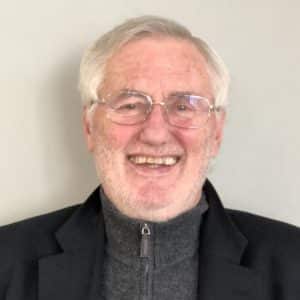
Rodney Kennedy
A dimly lit room on the 15th floor of an Art Deco courthouse in Lower Manhattan is the stage for the most closely watched legal drama in decades: the first criminal trial of an American president. The People of the State of New York v. Donald J. Trump, Indictment No. 71543–2023. The toxic mix of religious parody with Shakespearean tragedy becomes riveting television.
Pilgrimages have long been a permanent fixture in religious life. Pilgrimages involve a journey of moral or spiritual significance. Typically, There’s usually a shrine or place of importance to a person’s beliefs. For decades, trips to the Holy Land, led by Southern Baptist pastors, were a growth industry among evangelicals in the South. But pilgrimages are, of course, huge in other religions as well.
The spiritual center of Buddhism is Bodh Gaya, Bihar, India. For Muslims there is Mecca. For Christians Jerusalem, Bethlehem, and the Holy Land. For lovers of St. Patrick, there’s a pilgrimage to retrace his steps at Croagh Patrick or in the Northern Irish town of Downpatrick. For Anglicans, there’s Canterbury Cathedral. For Latter Day Saints there’s the Mormon Pioneer Trail. For the disciples of Mahatma Gandhi, there’s Salt Satyagraha, India.
At Bodh Gaya, you can see the large fig tree under which Buddha sat as he moved toward enlightenment. In Utah, you can retrace the Mormon trek to Salt Lake City. At Salt Satyagraha, you can walk in the footsteps of Gandhi’s nonviolent protest against the British Isle. And there’s a famous pilgrimage to Lourdes, a town in southern France. In 1858 a 14-year-old girl named Bernadette Soubirous reported seeing 18 apparitions of “a Lady.” Millions of pilgrims visit Lourdes every year for its supposedly miraculous waters.
Evangelicals have never given credibility to Catholic pilgrimage sites. From the time of Martin Luther and John Calvin’s bitter polemics against Catholic superstitions, evangelicals have not been fans of pilgrimages.
Now, there’s a pilgrimage for devotees of Donald Trump. You can book a flight to New York, take an Uber to a Manhattan courtroom, and visit where Donald Trump is persecuted, mistreated, and perhaps found guilty by what Trump claims is a collection of rogues more notorious than Pilate, Herod, and the Sanhedrin.
Of course, this is all about religion. From the beginning of Trump’s political career, evangelical typology made him religious and historical: he was King Cyrus, King David, King Solomon, Winston Churchill, and more persecuted than Abraham Lincoln. For evangelicals, he is “God’s anointed.” Some followers equate Trump with Jesus.
Trump’s primary defense is what rhetorical theorist Kenneth Burke called “the bastardization of religion.” Trump pretends he, like Jesus, is being persecuted, unfairly tried, and is the victim of a witch hunt. All these sub-themes have their own religious connotations. Jesus was put on trial by the Roman government aided and abetted by the Jewish Sanhedrin. The Salem Witch Trials were conducted by Christian Puritans. Trump’s political life depends upon the continued loyalty and devotion of a fierce group of Christians loosely known as evangelicals.
Patricia Roberts-Miller, a rhetorical scholar, says, “Typology, [is] another religious concept bastardized by demagogues. Typology is a way of reconciling the Hebrew Bible and New Testament by saying that characters in the Hebrew Bible are types that will be re-presented in the New Testament, and in the end times of Christianity. Oddly enough (or perhaps not), it’s long been a way to rationalize unethical behavior on the part of political and religious figures. For instance, 17th century American Puritans justified genocidal policies toward the indigenous peoples through identifying their in-group figures as the same type as some Hebrew Bible figure who had killed other peoples — such as Joshua or David. And think of the number of religious figures caught in adultery who claim to be David (a seriously flawed use of typology, as even conservatives admit).”
Three Republican Senators have led the pilgrimage to New York: Senator Rick Scott (FL), Senator Tommy Tuberville (AL), and Senator J. D. Vance (OH). As each senator spoke outside the courtroom in Manhattan, it looked like Rick, J. D., and Tommy, but the words were Trump words. They seem to think having sex with a porn star, covering it up, paying hush money to keep the affair secret, and using his influence to keep it from impacting the 2016 presidential election is normal, acceptable, even ethical behavior for Trump.
There’s an endless communication loop between Trump and his followers. He repeats what his people already believe; they repeat it back to him in liturgical slogans. Now, Trump’s words at his trial have been gagged, and his followers have appeared to mouth his words for him.
This suggests the relationship between a ventriloquist and his dummy. Ventriloquism is an act of stagecraft in which a person creates the illusion that their voice is coming from elsewhere, usually a puppeteered prop, known as a “dummy.” The ability to do so is commonly called in English the ability to “throw” one’s voice. Originally, ventriloquism was a religious practice. The ventriloquist act of Trump’s followers and Trump combines religion and reality television entertainment. How odd for Trump to be on trial for his political life and treating the courtroom as a stage.
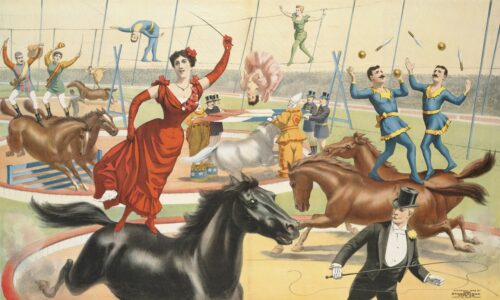
Barnum & Bailey “greatest show on earth” advertisement (1898)
Jeffrey R. Wilson, in Shakespeare and Trump, argues the Trump Show should be titled, “The Very Pleasant Comedy and Most Lamentable Tragedy of Donald Trump.” It is a story of self-serving and hypocritical career politicians preserving their power by trekking to the pilgrimage site; of the stunning moral compromises a resentful MAGA world is willing to make for the comic relief provided by a charismatic clown; of an amoral Machiavellian, hungry for power, manipulating the people’s anger, fear, and hatred of the government; and of the social catastrophe that can unfold when power is centralized in one man who becomes unstable. Trump and his acolytes lead us onto the level on which Shakespearean tragedy operates.
Wilson asks, “How does one live through a time of tragedy? Are we in the realm of evil? Where will the restoration of social order come from? Or will we see the downfall of dynasties and the end of an empire?”
Donald Trump is not a fan of restraints on himself. He is a fan of gold gilding — a thin layer of gold-colored trappings on things to make them appear more valuable than they are. According to Trump’s decorator, Angelo Donghia, Trump’s apartment was designed as a tribute to King Louis XIV who allegedly declared, “I am the state.”
Trump believes he can make his own rules. He has attempted to use his trial to help him get what he wants — an innocent verdict. He has used social media posts and speeches outside the courtroom to intimidate, to overwhelm, to mock, to insult, to threaten, and to entertain the gullible. Trump has used his rhetoric as a strategy to disrupt and make his case, not in the courthouse, but in the public and the media.
There are two mitigating factors Trump may not be considering. First, he is facing a jury of his peers, twelve ordinary Americans, and not a group of U. S. Senators who felt no need to consider the evidence in Trump’s two impeachment trials.
Second, he may not know the final words about Louis XIV. They were not “I am the State.” Instead, they were spoken by the great French preacher, Bishop Jean Baptiste Massillon. As the king’s body lay in state in a golden coffin, orders were given that the cathedral should be very dimly lit with only a special candle set above his coffin, to dramatize his greatness. At the memorial, thousands waited in hushed silence. Then Bishop Massillon began to speak; slowly reaching down, he snuffed out the candle and said, “Only God is great.”
Watching the “faith-based” party kneel before a criminal defendant in a case involving a porn star turns the stomach of anyone remotely interested in the first of the Ten Commandments: “You shall have no other gods before me.”
Rodney Kennedy has his M.Div. from New Orleans Theological Seminary and his Ph.D. in Rhetoric from Louisiana State University. The pastor of 7 Southern Baptist churches over the course of 20 years, he pastored the First Baptist Church of Dayton, Ohio — which is an American Baptist Church — for 13 years. He is currently professor of homiletics at Palmer Theological Seminary, and interim pastor of Emmanuel Friedens Federated Church, Schenectady, New York. His seventh book, Good and Evil in the Garden of Democracy, is out now from Wipf and Stock (Cascades).

